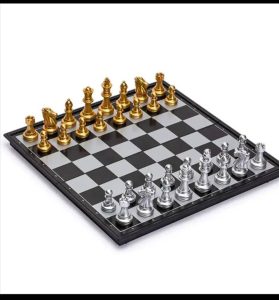 Politics, like chess, is a masterclass in strategy, anticipation, and adaptability. It is a realm where every move must be calculated with foresight, yet the endgame often remains uncertain, influenced by an array of unpredictable variables. Niccolò Machiavelli, the Renaissance thinker and master of political strategy, aptly observed: “The wise man does at once what the fool does finally.” This truth underscores the essence of political maneuvering—timing, decisiveness, and the foresight to act boldly when the moment demands it.
Politics, like chess, is a masterclass in strategy, anticipation, and adaptability. It is a realm where every move must be calculated with foresight, yet the endgame often remains uncertain, influenced by an array of unpredictable variables. Niccolò Machiavelli, the Renaissance thinker and master of political strategy, aptly observed: “The wise man does at once what the fool does finally.” This truth underscores the essence of political maneuvering—timing, decisiveness, and the foresight to act boldly when the moment demands it.
In chess, as in politics, the cautious and methodical approach of playing slowly and steadily has its merits. Such an approach enables one to maintain control, study the board, and evaluate potential moves. However, Thomas Jefferson’s words serve as a timeless cautionary tale: “Delay is preferable to error, but it often forfeits opportunity.” In the unpredictable arena of power, waiting too long or moving too cautiously can shift the advantage to a more audacious opponent.
Chess, much like politics, is not merely a game of pieces but a game of the mind. Each pawn sacrificed, each knight advanced, is an echo of the compromises and alliances forged in the political world. Success lies not in adhering rigidly to one’s initial strategy but in adapting to the dynamics of an ever-changing board. The opponent’s moves, whether aggressive or deceptive, test one’s resolve and ability to recalibrate.
Consider a seasoned chess player who lays a trap, appearing vulnerable only to execute a checkmate when least expected. Similarly, in politics, leaders may feign weakness, negotiate alliances, or even retreat momentarily to return with unassailable strength. Machiavelli’s insight resonates here: “The lion cannot protect himself from traps, and the fox cannot defend himself from wolves. One must therefore be a fox to recognise traps, and a lion to frighten wolves.”
Neither chess nor politics guarantees victory, regardless of how meticulous the preparation. In chess, even the most calculated move may be undone by an unforeseen counter. Similarly, in politics, the brilliance of a policy or the perfection of a campaign can falter against public sentiment, media narratives, or the machinations of rivals. Jefferson reminded us of this uncertainty: “The art of life is the art of avoiding pain; and he is the best pilot who steers clearest of the rocks and shoals with which it is beset.”
A delayed attack in chess is akin to a missed opportunity in politics. Leaders must strike when the moment ripens, capitalising on the weaknesses of their opponents. Just as pawns are sacrificed to protect the queen, politicians often make personal or policy sacrifices to achieve overarching goals. In chess, victory is determined by the final checkmate, not the number of pieces captured. In politics, history judges leaders by the legacies they leave, not merely their victories or defeats.
Ultimately, politics, like chess, demands not just skill but an indomitable spirit—a readiness to face uncertainty, recalibrate strategies, and seize opportunities as they arise. It is a game where only the shrewdest survive, guided by the wisdom of the fox and the courage of the lion.
As we navigate the political landscape, let us remember the invaluable lessons from the chessboard. Winning is not a guarantee, but those who play with vision, resilience, and adaptability often emerge triumphant, leaving an indelible mark on the pages of history.


